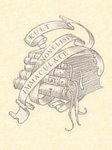Want to write a derivative work? Seriously, think twice. Do your own stuff. Someone writing under the pseudonym J.D. California wrote a sequel to "Catcher in the Rye," perhaps not knowing that J.D. Salinger not only is alive and kicking, but litigious. So now there's a lawsuit. Even if J.D. Salinger wasn't so inclined, really, do you want to hazard the chance of something like this happening to you?
I wonder if pseudo-California has ever heard of the term fanfic.
Maybe you're lucky enough that you feel your heart and soul is inspired by a work that happens to be in the public domain. Good. And yet, wouldn't it be better to rename the characters, twist the setting in a direction that resonates with your plot (or do some research and deepen the setting in a way the original author didn't explore) and let the characters grow with the challenges you place before them ... in short, writing an original work inspired by the book? You'll have something that's completely your own, and by the time you finish revising and restructuring and hammering out the details of your world, I doubt anyone will recognize what you've done. Plus, people may notice the tone or themes or characterization and nicely note that the work "is reminiscent of the works of J.D. Salinger, but with a present-day edge informed by the politics of 21st century Sweden."
I wish Mr. Salinger well.
Now I'm curious to see how the whole Potato Day (Stephanie Meyer fanfic Fail that I won't link to so that it reduces traffic) thing is doing. Hmm ... looks like she altered her page to be in Español. Does she think this will save her? I thought she would fade away after being met with lawyerly threats, but it seems she persists. I think she wants to get sued for $100,000 and spend time in jail. Weee! She's got to be one of those people who believe that if nothing bad has happened yet, it won't. Wow. The fail, it burns!






